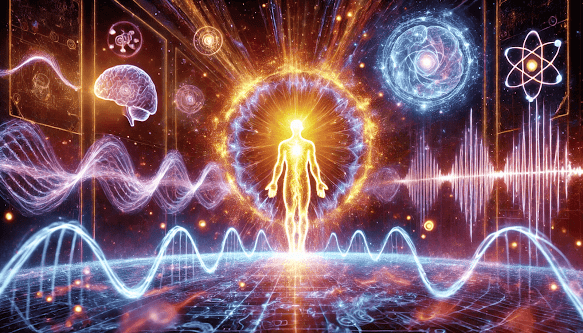Alcoholism, Abuse, and Hope: A Journey to Healing
“I had to decide if I would let
my past define me or if I would rise above it. I chose to rise.”
What happens when love and chaos start sharing the
same roof?
What do you do when your house is
no longer home? When the people who are meant to love you and keep you safe are
the very ones who hurt you the most? Living with an alcohol-dependent parent is
like being on a rollercoaster of fear that never ends. One minute, everything
is fine. Then, the air is charged, anticipating the next huge blowout.
Children in these households learn
to read the room, hold their breath, wait for the blowup, and attempt to be
small so they won't be the focus. But what is the long-term price of living in
survival mode? Can the cycle of addiction and abuse ever actually break?
Tricia Lugo's Breaking the Chains
of Silence presents us with an honest and real picture of this life. Living in
a world where drinking made chaos the new norm, she witnessed how addiction can
lead to violence, neglect, and being emotionally unsafe. But her life is not
simply about the hurt; it's about surviving it. Using her strength, faith, and
perseverance, she discovered that healing is possible. Her life reminds us that
no matter how deep the wounds are, there's always hope close by.
In this blog, we will discuss the journey to healing. Let’s get started!
The Silent Damage of Growing Up with Addiction
Addiction doesn't just harm the
one drinking; it harms the entire family.
Children of alcoholics grow up
being cautious, never knowing which parent they'll get. Will it be the loving,
apologetic parent who vows to quit drinking once and for all? Or the angry,
explosive parent who blows up at anything?
This instability leaves
long-lasting scars. Many children of alcoholics enter adulthood with anxiety,
trust issues, and an overwhelming need to please others. Some continue the
cycle by themselves, turning to substance. Others take years trying to prove
they're "good enough" in order to get love they never experienced.
The hurt is bad, but it can be undone. It takes patience, support, and a desire
to break free.
Even those who don't become
addicted will find the psychological effects just as damaging.
Hyper-independence, abandonment issues, and relationship woes are just a few.
Awareness of these habits is the key to ending them.
Breaking Free: Ending the Cycle for Good
Can you break free of the habits
of your past? Unlearn survival skills that protected you but now hold you
captive? Healing from a childhood of addiction isn't about pretending it didn't
happen; it's about facing it and deciding it stops with you.
1.
Identify
the Impact
Denying the past won't make it
disappear. The key to healing begins with admitting how your experiences
altered you. It's alright to grieve for the childhood you never had. Writing in
a journal, doing therapy, or even having straight-up conversations with
yourself can prove to be remarkably helpful in the process.
2.
Seek
Support
No one has to be alone in this.
Therapy, support groups, and good friends can help you work through the
feelings and begin to heal. Finding others that get your fight can change the
course of your life.
3.
Establish
Boundaries
If a family member is still
fighting addiction, it's okay to guard your peace. Setting boundaries doesn't
mean it's in your best interests. Learning to say no, staying away from toxic
situations, and selecting relationships that feed you rather than drain you are
all crucial steps in the recovery process.
4.
Redefine
Your Story
You are not your past. Just
because you're from chaos doesn't mean you have to remain there. Recovery is
about taking back your story and building the life you deserve. What happened
to you is a chapter, not the whole book of your life.
5.
Practice
Self-Compassion
Healing is never guaranteed. There will be days you
wake up having slept long enough and feel as if you recovered from everything
and other days; the old wounds do catch up with you. Be kind to yourself either
way. Self-compassion is a huge key to shattering the cycle of trauma.
Why Breaking the Chains of Silence is the Wake-Up Call You Need
Tricia Lugo's Breaking the Chains of Silence is a gripping memoir about life in a world defined by addiction,
abuse, and betrayal. She takes you on a first-person journey through the
long-term effects of an alcoholic home and the courage it takes to break free.
Through faith and determination, she was able to reclaim her life, and now she
invites others to do the same.
Hope is Waiting on the Other Side….!
It's not simple to move past a
difficult past, but it can be done. Tricia Lugo's story teaches us that healing
isn't forgetting the past; it's not allowing those past experiences to run your
life anymore. If you've ever felt trapped by your past, keep this in mind:
you're not alone, and your story isn't over. Healing is an option. Step one?
Acknowledging that you deserve better.
Your past does not have to define
your future. Each day is an opportunity to reclaim control, rewrite your
narrative, and live a life that is right for you. Healing is a process, but
with each small step you take, the weight of the past lightens. Choose hope, choose
healing, and choose to break the cycle because you absolutely deserve it.




Comments
Post a Comment